CONVERSATIONS |
Tricia Tan, Omoté | Interview
Written by Amit Sharma, Community Development Manager
If you are an entrepreneur in the food industry, you can learn a lot from Omoté and how it has carved a niche with its modern Japanese fusion cuisine to build a successful franchise chain. On the eve of the International Women's Day, we bring to you an exclusive conversation with Tricia Tan about building her successful franchise brand - Omoté, from the ground up, and her perspective on leadership and what it takes to succeed as an entrepreneur.
What inspired the concept of Omoté? Please tell us where it began and what your big idea was?
Tricia: We started with 12 seats in 2015, and we were very like a hole-in-the-wall concept. So how the business really came about was that we took what was special about Japanese food that everybody used to love.
It's always this idea of chancing upon this Isolated restaurant or like this hole-in-the-wall place, and then like just being absolutely delighted by the food. So, I think that's where it stemmed from and we wanted to build that kind of brand.
We always say that Omoté is like a labour of love because we were never like, okay, now, we want to build this into an incredible, huge brand. It's just that it's organic and people love the brand so much that we were given the opportunity to be where we are today. And that's also why the following is growing because ultimately to us, F&B is food and we love sharing food with others.
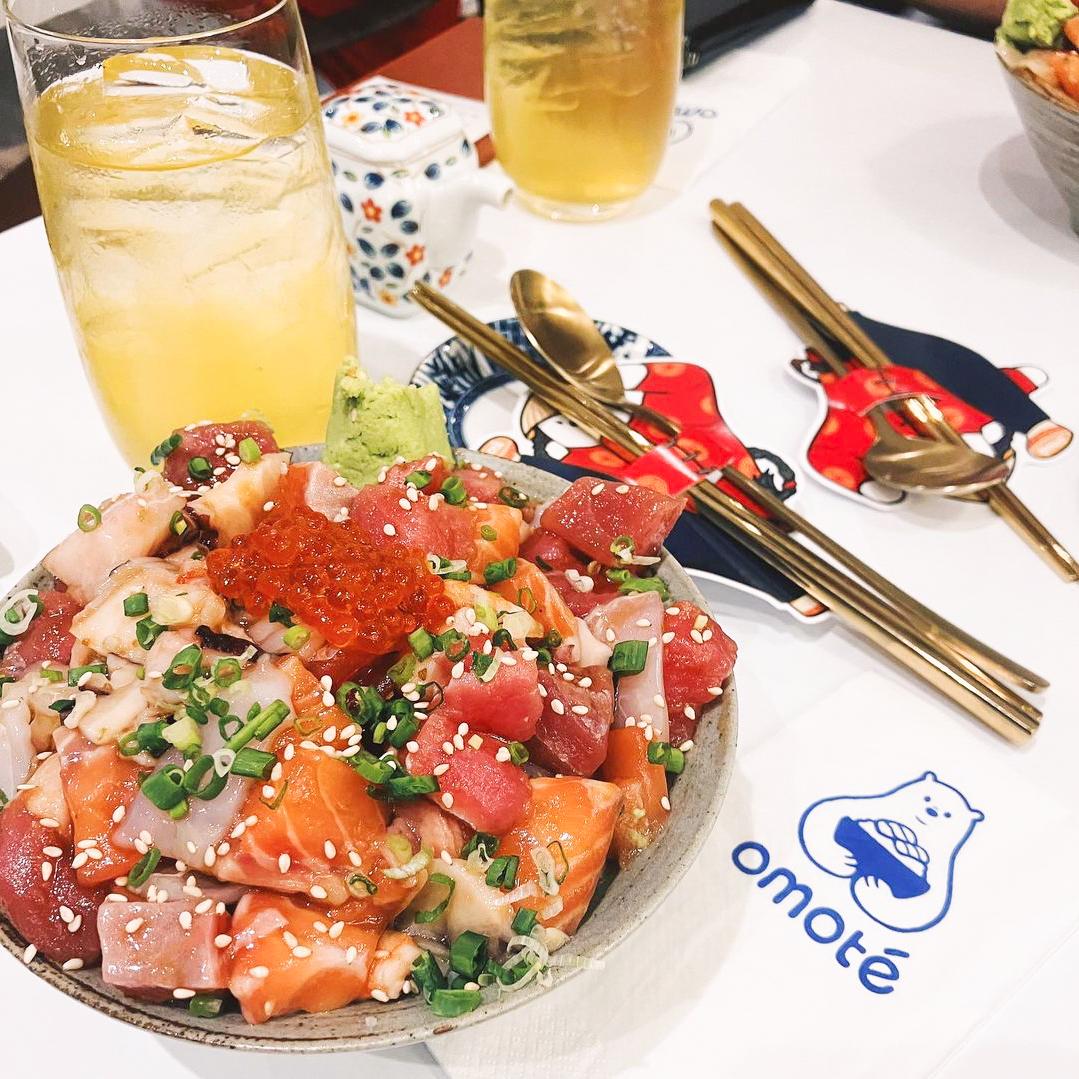
When we started, because we only had a few limited menu items, we were coming up with daily specials and weekly specials, and people loved that about the brand. We weren't like other chain restaurants or like other one-stop restaurants where they have a fixed menu and it doesn’t really change because we are pretty light on our feet in the sense that everything gets stale after a while and everybody likes something new, but they still don't want to give up their original flavours.
So, with that, we saw people enjoy this nice local fusion food because we didn’t want to go all the way Japanese since there were other restaurants that did that. Moreover, because our target market is a lot younger, the 25 to 45 age group is the space that we've done very well. The customers, you know, are not too demanding in a way, but they appreciate innovation and they also appreciate just trying something new.
And so that's why we decided to move into a modern fusion kind of style where you get Japanese food, but it delights you in the sense, where, hey! I didn't know Japanese food could be done in this way and in another way because, you know, we love our local food.
Asian cuisine is all about full flavours and spices and everything, and it doesn’t mean that just because Japanese cuisine should be one way, we had to do it that way.
So that's how this idea really grew. It's like we planted the seed and it grew into a tree, with everybody's watering it by coming and visiting the restaurant and, and appreciating what we have. And that's how we are modern Japanese fusion today. So, we are evolving with the times. We are always learning and we are always growing as well, with the customer and with our team.
How did you come up with the name, Omoté?
Tricia: In Japan, Omotesandō Hills is where all the youngsters hang out. And Omotenashi is refers to Japanese hospitality. So, we wanted to be a truncated version of what Omoté is to us, so it's Japanese hospitality, but for the young and the trendy. So that's why we came up with the name Omoté.
What is it about Omoté that really excites you?
Tricia: What excites me the most about Omoté is the fact that we are always changing and we're non-conformist in the sense that even though we’re Japanese cuisine, we're not sticking very close to the lines. We incorporate the traditional cooking technique, like, for instance, the Dashi stock or the rice, it's all still done by hand by our head chef. So, we still keep those elements of what it means to be in Japanese cuisine, but when it comes to the dishes that we churn out, it's really quite unique and it's special, and that's what I love about the brand.
Maybe that's what people also like about the brand. In fact, on our menu, we also have a section for local and exclusives and this actually goes for every outlet, they will have their own set of special items. So, for instance, the new outlet at Raffles City also has five new items that are exclusive-only to the outlet. This design of the menu is an extension of our personality. The original signature dishes like the chichi bowls and things that people love are always going to be there, but we focus a lot on the sides. So, you know, you are like trying something new without actually trying something new.
We’d love to know more about Omoté’s latest outlet in Raffles City?
Tricia: The Raffle City's latest outlet has a Korean influence. So, diners will get the Korean spices, you get that Bulgogi in there. But we also have an exclusive set of lunches that come with 10 side dishes because in Korean cuisine, they, they're all about the side dishes and in the CBD area, everybody loves to do a set lunch because it's easy, nice and budget-friendly. So, we keep all the favourites throughout the outlets, but we give each outlet its special, unique style and also exclusive dishes. That is what I love about Omoté and also what I think Raffles City outlet will be great for.
What is an exciting marketing gap that you hope to fill with Omoté in the next few years?
Tricia: At Omoté, we've been all about packaging and branding just because as consumers, that excites me about the brand. So how we always plan our campaigns or like our marketing style is like, as a consumer, what is it that excites me about this brand? Why is it that I'm going to this brand and not another brand?

And so, we've got our Omoté Anniversary bears that we give out every year that customers look forward to. We've got our chopstick bears that customers can keep. So, with every experience, people like to keep the design. So, they'll ask how many designs in a year and then they'll come for that.
I believe, we have to be a lot more than just food, right? Nowadays it's so competitive and it's also understanding where you stand in the market. So, we are not fine dining, we are not like the Sushi De or the Ichiban Sushi and stuff like that. And it's because we serve a very fusion oriented kind of Japanese cuisine.
And we have that opportunity to be fun when we are young and we've got a nice polar bear mascot. Therefore, how we're going to grow in terms of marketing gap is to actually add on a little bit more merchandise, but to make it almost as part of your subconscious, that Omoté is everywhere with you. So, it's this fun and vibrant style in our marketing. That's not so corporate looking or like corporate colours. So yeah, in terms of marketing gap, making it more of a lifestyle brand in toto, because eating is a way of life, right? We need to make sure that, that we are in that space as well.
Omoté is popular for its creative menu. Please share the process for creating such a creative unique menu?
Tricia: When we plan any menu, we sit down and talk to our creative team, operations team and kitchen team and speak to them individually. We actually have brainstorming sessions where we have a lot of ideas thrown in the air. We probably go through at least five rounds before we even start like the first innovation of dishes just to make sure we've not missed out on anybody.
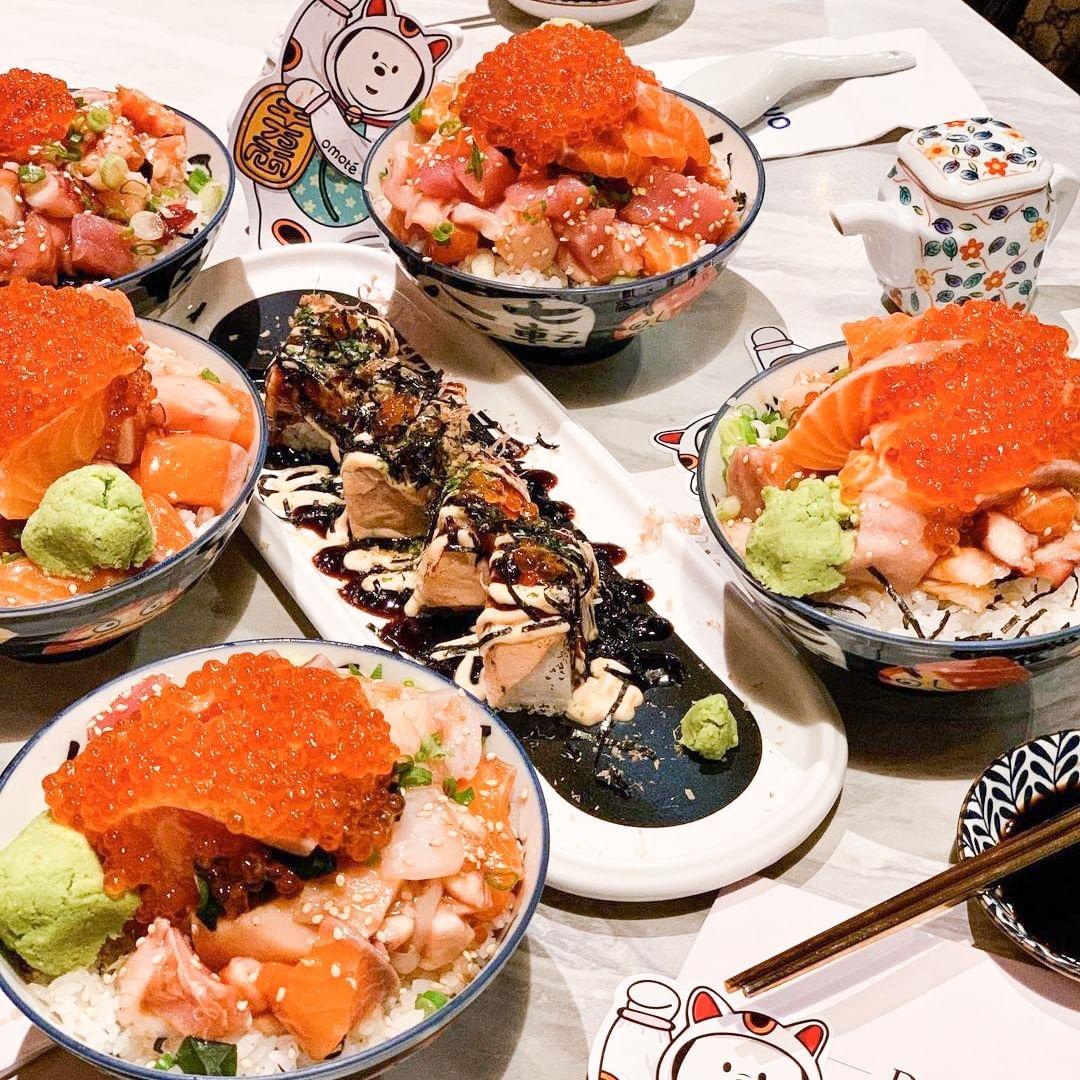
We don't follow trends, instead, we always come up with something and then if people respond well to it, then other people will follow. We always will sit down and say like, what do we like this time around? Or what is it that people have liked in the previous round? And how can we kind of amplify that in this next menu?
So, we try to up our game as well, because I believe, if you stagnate, you will die in this industry. You know, earlier, every time we came out with a new menu, people would be like, Oh no! but I love my old meal that I always get. So, we decided, ok, then let’s not touch that. Let’s come up and introduce a lot more sides.
Also, we've got a lot of families and friends and because a lot of Asian cultures are about sharing food, it's like, I want a little bit of everything. So, we observed that they want the variety, but they don't want to commit to like a large amount of it. Therefore, we focus a lot now on sharing item sides. We also plan the menu with family and friends in mind. So, like if I come with my friends, what can they eat? If I come with my mom, what can she eat? If I come with my grandma, what can my grandma eat?
That’s why we plan that before the menu comes out and we also think like, Okay, what can we do that's kind of a different? Like what do I enjoy eating at the food court that most Japanese restaurants don't do? That's why on this menu we have dishes like the Hockey and Me, which is a very classic street food favourite. We've also got Prawn meat, that's almost like soul food for us and we use Japanese ingredients to boil the stock.
There’s also always a theme in mind. For instance, the previous concept was more minimalist, and then we came up with one coffee book style. We wanted to have a different influence on every menu to kind of show customers what our thought process was with that. So it's the different moving parts that come all together that put on a good show for everybody to come and eat.
Omoté has been a trailblazer in Singapore’s culinary landscape, So what trends are you looking to explore in the near future?
Tricia: We're looking to not really explore, but how we can introduce a lot more flavours from around the region to Japanese cuisine. Because I feel that a lot of people are always hesitant when they hear Japanese food. They always think like only raw fish, right? And then people, if, it’s the western market, they'll always be like, Oh, I'm not sure, if it is something that I can take? Or they'll always be very averse to it.
And we wanted to kind of portray that Japanese cuisine is not only raw fish, it's not only sushi, not only sashimi, it's a lot of things. So that's why we’ve got beef, we've got chicken, we've got the squid sticks. And aim on making the Japanese cuisine more approachable in a sense where you don't feel like, Oh! I'm so afraid to try something.
It just opens up your market to have more people come. That's why we have grilled fish, and noodle soups, and something for all ages. You know, there's something for everybody, whether you like it sweet, salty, or spicy. This is how we want to grow this.
I often say when we talk about growing the brand, that it's about what more can we introduce to customers so that they will be able to accept it. I think that's how we would like to grow and also to see growth in different locations. Recently, we've signed a deal for Malaysia to expand there and then we're also exploring other countries. So, with each country, the flavours have to change, right? Some countries like it stronger, some countries prefer it a bit lighter and that's where we kind of want to showcase the dexterity of Omoté and the fact that we're able to really grow with the consumer base rather than just sticking to it.
What excites you most about the world of franchising?
Tricia: I like the fact that we are able to meet different people, and understand different countries and their consumer behaviour, lifestyle choices, and what they like about things in particular. And also, how we can create a new customer segment and have people also excited about the brand.
F&B franchises faced many challenges during COVID but you overcame the odds and even accolades for being an inspiration, Please tell us about it.
Tricia: I think the Covid pandemic actually propelled us into the social media space. Omoté is famous in our location so if you know Omoté, you know Omoté, but if you don't know Omoté, you wouldn't know.

And in Covid, everything was all about social media. And because of packaging, like I told you, we focus a lot on like colours and gifts. People actually started sending food as a way of showing their love for their family members. You know, like, hey I'm thinking of you, I hope you're doing well. So, during the Covid time, we wanted to be that, almost a bridge. So we would leave notes for people and if family members are celebrating birthdays, we just leave a happy birthday gift and people enjoy receiving that.
And also, because our packaging is really colourful, people were pleasantly happy to get it and then that's how we grew and people were more and more interested in the brand and the food that we created.
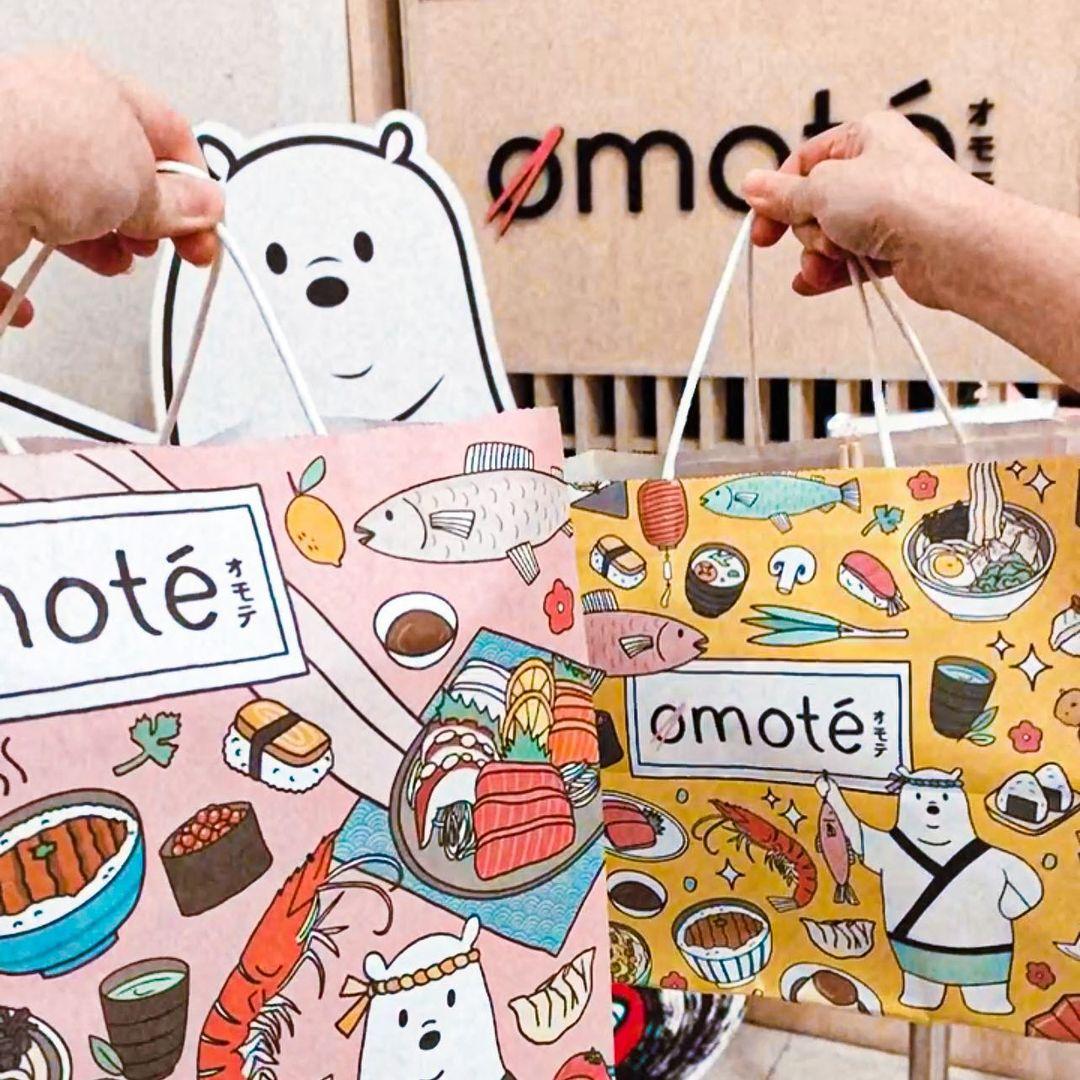
Also, because our food travels really well. Even though it's raw food and it's cold, we pack it very well. And therefore, it doesn't have this problem that you usually face when you have Western food, where it's a bit soggy by the time you get there and that's not so great. But for Omoté, you can eat it any time and it's still fresh. And I guess that’s the way that F&B worked, I think because of Covid it really pushed everybody to think out of the box. And because we are pretty light in our feet where we don't have to go through like channels and channels of SOP rounds, it was quite easy to adapt and I feel that because we are very customer-centric and we plan from that aspect, it was easy for us to pivot.
I think for us it was just really focusing more on that consumer experience. How I can still have fun with the people at home and it's still new and refreshing. So that's how I think that's what really contributed to how we were able to reach a wider group of customers in Covid time.
Many entrepreneurs admire your success but would also want to know a little bit about the road bumps that you hit along the way. Could you share some specific examples of how you managed to overcome the challenges?
Tricia: I feel like being in F&B every day is a new problem. Every day is a new challenge. So, if you are not prepared, this will be like a rollercoaster ride for you. But for us, I think even uptill today it is an operational issue. You can set up a really good team, but without the right procedures in place and without people who truly are in sync with your brand, it's very difficult for the customers to feel your passion behind it.
Because everybody in front that sells the customers are our ambassadors. What customers interact with, is our frontend team. So, the main issue is always getting the right fit for your brand. Who fits you and do they share the same sentiment you have. And do they represent the brand the way you are looking to do so? And I think just because of manpower issues and hiring, people always say like, Oh no, we can't get this.
We can't get that. But it's also about moulding and shaping the team. You need to understand that it takes time to nurture somebody. You cannot expect them to be a certain way all the time. When you say that this is a family, you kind of need to mean it. If not, don't say it. You know, people need to trust you and they need to respect you as their leader. I mean, I never ever say that this brand's great because of one person. No, it's a collective effort. It's like a car, right? There are tons of moving parts. If one part fails, your car doesn't work, or it doesn't, it's not performing at its best.
And that's, I think, yeah, that would be a major thing. Hiring the right people for you, for your brand. They don't have to be the best, they don't have to be PhDs and, and whatnot, but it's more who they’re in totality and how they're able to value add where they can.
What are some of your greatest lessons in growing the Omoté franchise?
Tricia: Greatest lessons that I've learned in growing the brand is never to lose sight of why you started the brand in the first place. And the next lesson is that people and the team are everything. You can't create a great brand without the right people in place. We can put out a fantastic menu and we can have, you know, the best decor, but without the life, a restaurant is just tables and chairs. So, for me, that would be it.
Never losing focus, never losing sight of where you started, and never giving up as well. Because you need to know that in any business there's going be a ton of headaches and it's never smooth sailing. But you must know that you're doing it not only for yourself, but for everybody else who believed in you and in your brand. So yeah, you need to stay strong for them as well.
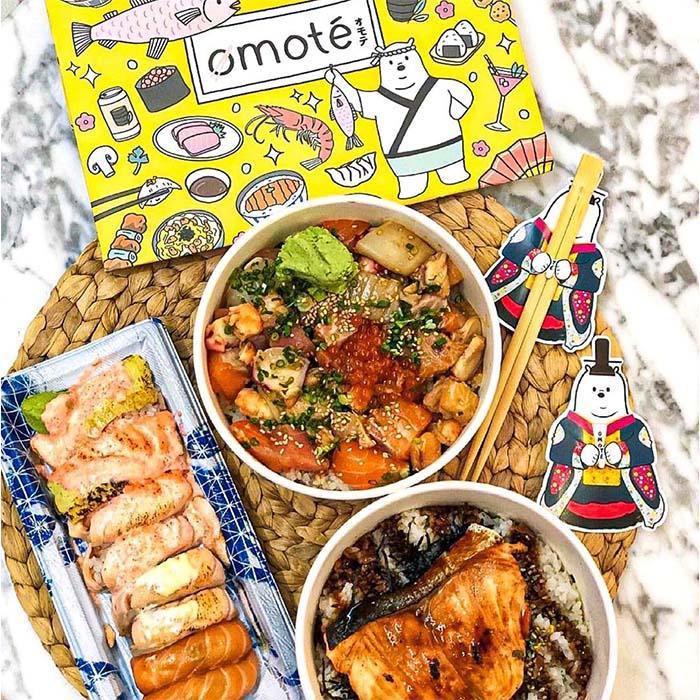
What are some of the advantages of being an Omoté franchise?
Tricia: We have been able to set in very, very clear SOPs in the way the food is served or the way things should be done, so that no matter where you are, you're able to replicate the same experience.
I think consistency is the key one that a lot of people miss when they open outlets and the fact that everybody wants to feel the same way. Like, if I go to this store A, I should feel the same, if I go to store B, which is why McDonald's is doing fantastically well. Same with Subway. There is a quality control behind that.
Being an Omoté franchisee, you too get the access that we give. And because we act in a different way as a normal franchise where it's usually like, Oh, we sell this to you and then it's done. We're actually very invested in the brand, and the brand owners, and we work very closely just to make sure that we're setting up on the right foot.
And then once the wheels are moving, then we will always go in and audit and check to ensure that the food is always prepared the same way, or the sauce, is done this way and we are able to quality control from this. It's good to always refresh and to check up on the team that's on the ground and serving what are their drawbacks and let's see how we can try to, help or offer best practices.
Because with different stores of different sizes, everybody has different issues. In the bigger kitchen, there's probably going to be, space issues, storage issues, or just operational flow versus a smaller store, which might be easier or maybe the volume of customers that you're serving is a lot higher.
So, the Omoté franchise is like a partnership where we really want to see you succeed. It's not about the world, not about the money only. That's not why we're doing this. We hope for a bigger group of customers to enjoy Omoté the way that we designed it.
What advice do you have for somebody who's looking to buy an Omoté franchise?
Tricia: My advice is to experience Omoté first! I think it's more important that are you excited when you look at the menu. Omoté is kind of difficult to explain because on paper it's like every other restaurant. You only understand a Modi after coming To Omoté.
So, my advice is to come to Omoté and sit down in the restaurant and then decide if you love the brand and you feel that you know it's got potential at where you are. Then we would love to get a conversation going.
What type of training and support do you offer to Omoté Franchisees?
Tricia: We actually have you come into our kitchens and because right now we've got four outlets running, you actually get the experience of a big restaurant and then a smaller restaurant. And you work side-by-side by side with our key team.
We actually put out our trainers who have been with us for years and that have seen the brand grow so they understand the brand DNA with them, for training. So, when it comes to training, you really get it from the people who have the knowledge and the expertise in that field. Besides coming into our kitchens, we also make sure that during your openings we are with you there so that if there are any kinks, we're able to ease them out for you.
So, it is really hands-on training because you can only have so much reading and memorizing. At the end of the day, it's how you feel and the customer experience and engagement level.
How long does it take on average for a franchisee to, realize their investment?
Tricia: I think it depends on the country because we then calculate the Capex. As such, we don't like to invest too much into the interiors because we like to break even within a year. So, depending on what your overheads are, labour costs, investment in the rent, your interior, everything comes into play with that. But generally, it's within a year.
Where do you see Omoté in the next five years?
Tricia: I hope to see our brand in more countries over the next five years. We are presently also developing a game app. Because right now everybody is so glued to their phones, we wanted to launch a game based on starting out your own sushi restaurants. And so, we got our little mascots and then something fun for all ages to play.
So, in the next five years, I think with Omoté being in other countries, we also hope that people see Omoté a little bit more than only a food brand. You know, like everything else in the lifestyle brand. And when you think of the word Omoté, you go like, Hey, I love Omoté. I think that's what we hope to do in the next five years so more people know about our brand.
What are the exciting markets within Southeast Asia that you’re looking to grow? And are also looking to expand worldwide?
Tricia: We are very excited about growth plans in Southeast Asia. A a lot of people have been proposing to set up the outlet in countries across east Asia. I feel like we would like to be in countries where there's an opportunity because food is very open.
We are definitely looking to expand worldwide too because we had a lot of tourists come before Covid and it's kind of a unique way to introduce a new cuisine to them. So they, as I told you, when people always think Japanese cuisine is only one way, they are like, hey, I didn't know that's going to be like that.
So, of course, we would love to be anywhere that has potential for us and that customers may get excited, knowing about Omoté. Presently we're not limiting ourselves to a particular country and we don't have like a wish list. It's more of where can we value add where we go.
Do you have a mentor and is there, or is there somebody you look up to for inspiration?
Tricia: I actually look at my own team for inspiration. I look at them and, the dedication that they have, and that's something which you cannot fake.
So, because, I know a lot of people who always have a specific person in mind, but I feel that you must inspire yourself from the people who give 100 percent every day and they do best. And that is the best kind of motivation that I can get.
They speak to the people, and since they are on the ground, they know what customers want. So they're speaking from real life experiences and they're speaking from, you know, a place of a lot of knowledge. So, my team is everything really for me.
What do you know now that you wish you had known when you started your business?
Tricia: When I started this business, I never knew that it was going to grow to this scale. To be honest, I feel like what we have today, Omoté is like my wildest dreams, like exponential. I always thought that we were just going to be a small store and that we were just going to service people who enjoyed the food. Having the kind of response, we’ve got, even until today is amazing.
And so, I think what I would tell myself when starting the journey is never be afraid to dream big. Because you never know, everything could happen, but you must stay true and you must never forget why you started this and don’t lose focus.
From your experience, what three things do you need to be a successful entrepreneur?
Tricia: You need to stay focused, have patience, and be resilient.
What one key lesson in leadership that you've learned in your epic journey?
Tricia: Communication is everything We need to be able to communicate in order to get things done and to do things better.
What are your top 3 tips for entrepreneurs to stay productive each day?
Tricia: Always be organized. I think that is one way to stay productive, to know that within this time you need to get certain things done. Every day I sit down and write a list of things I need to do, and I plan it and organize it. So that I know that this has to be done at what point of time. And I always have notes in my phone to know that, Hey, don't, don't forget this. So always be organized, That's number one.
Two is having a schedule. So being organized and having a schedule is kind of different. Because you have ten different things going on at once, and you only have that many hours in the day. Knowing the schedule is important and having a routine I think is good to be productive.
And the last one is knowing when to switch off and when to switch on. Because if you're working 24x 7, your brain doesn't switch off and you will always hit this burnout period. So, knowing to take like two hours of time to refresh yourself would definitely help you, re-energize for the next day.
You Might Also Like

CONVERSATIONS | 8 March 2023
Emma Lehner, BODY STREET | Founder Interview
On the eve of International Women's Day, we share a conversation with Bodystreet founder Emma Lehner on her inspiring journey as a global franchise leader, franchising and entrepreneurship.

CONVERSATIONS | 8 March 2023
Serene Ang, Snackz It! 可口味 | Founder Interview
On the eve of International Women's Day, we share a conversation with serial entrepreneur, Serene Ang, Founder, Snackz It! 可口味 on her inspiring journey and franchise opportunities in Singapore.
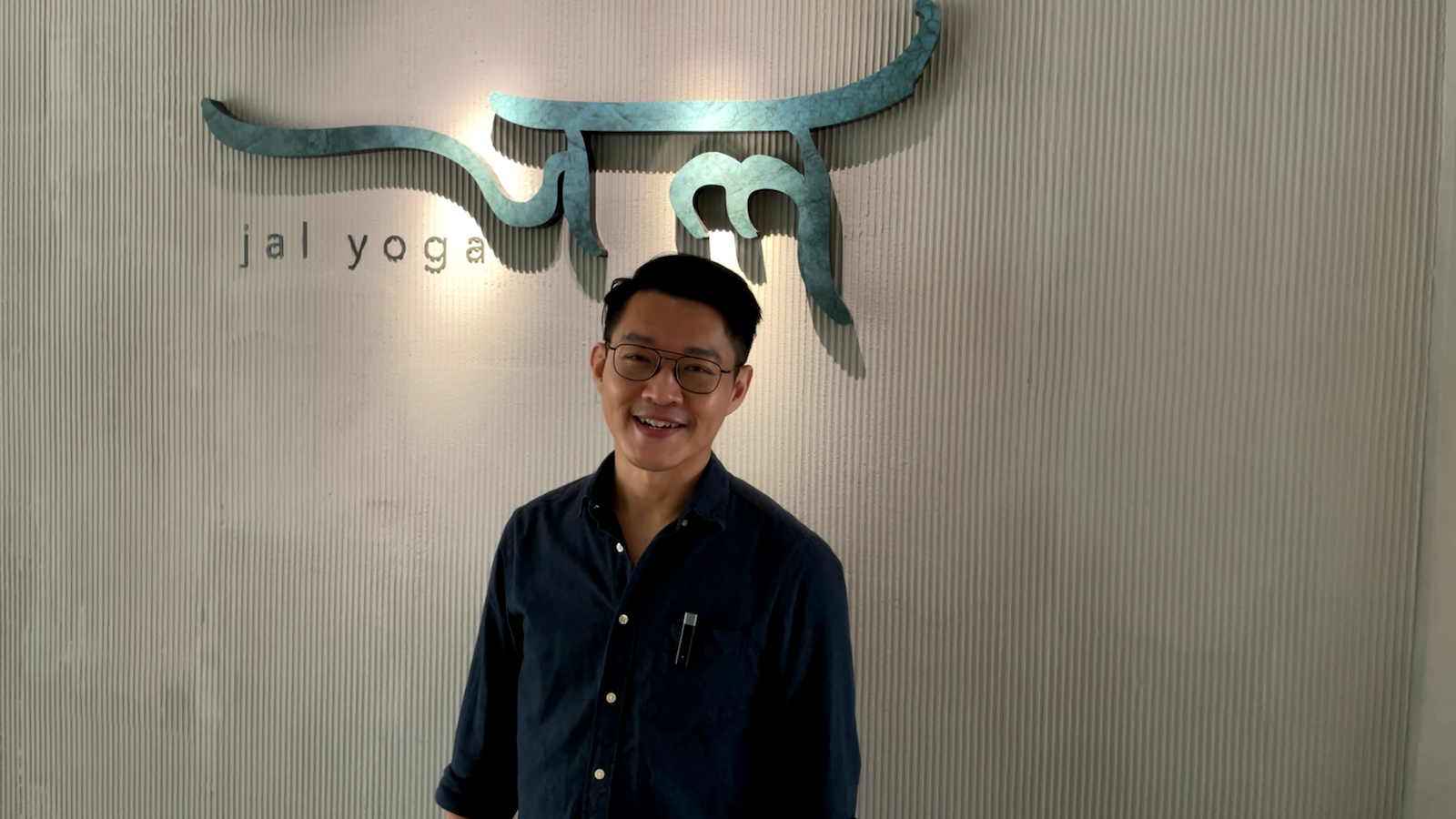
CONVERSATIONS | 19 August 2022
"It’s Been An Amazing Journey" - Yee Chong, Jal Yoga, Malaysia Franchise Partner
Yee Chong, Jal Yoga’s franchise partner for Malaysia, is charting new territories and milestones as he leads a thriving fitness and wellness revolution.
Latest on TFA
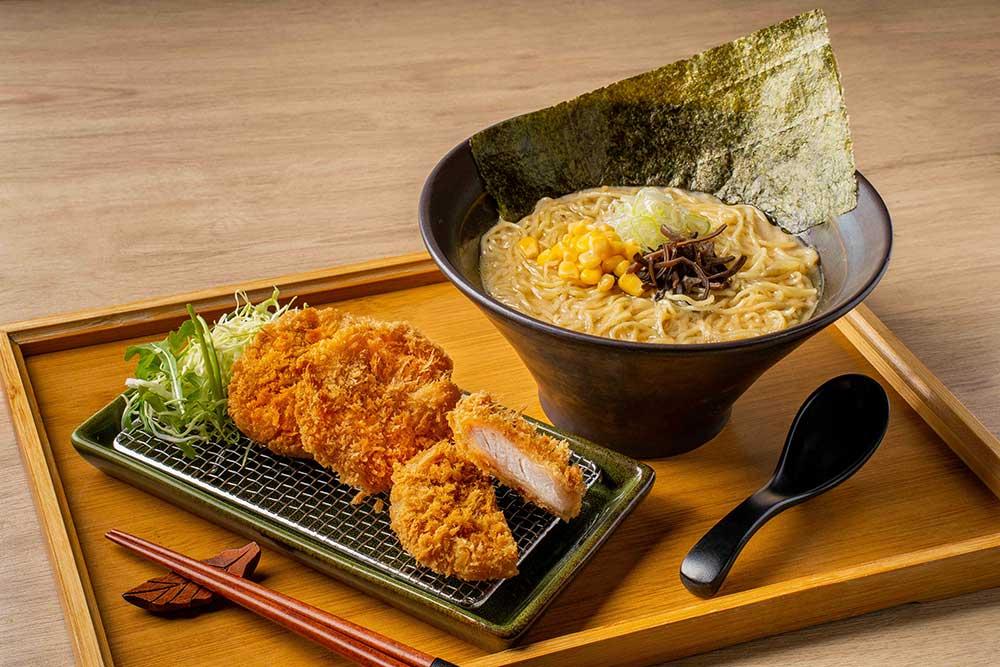
EXPLORE | 31 January 2026
Japanese Dining Continues to Dominate: EN Group Eyes the Philippines for Its Next Growth Chapter
Japanese cuisine has evolved from a niche international offering into one of the most resilient and preferred dining categories in the Philippines.

SUCCESS | 20 November 2025
Omoté: Singapore’s Beloved Modern Japanese Eatery Lands in the Philippines
Omoté has long been one of Singapore’s most beloved modern Japanese dining spots, well-known for its generous chirashi bowls, progressive Japanese flavors, and its philosophy of serving quality food a

SPOTLIGHT | 14 November 2025
From a Small Dream to a Big Movement: The Story Behind Smashed
Some brands start with capital. Others start with credentials. Smashed started with heart.